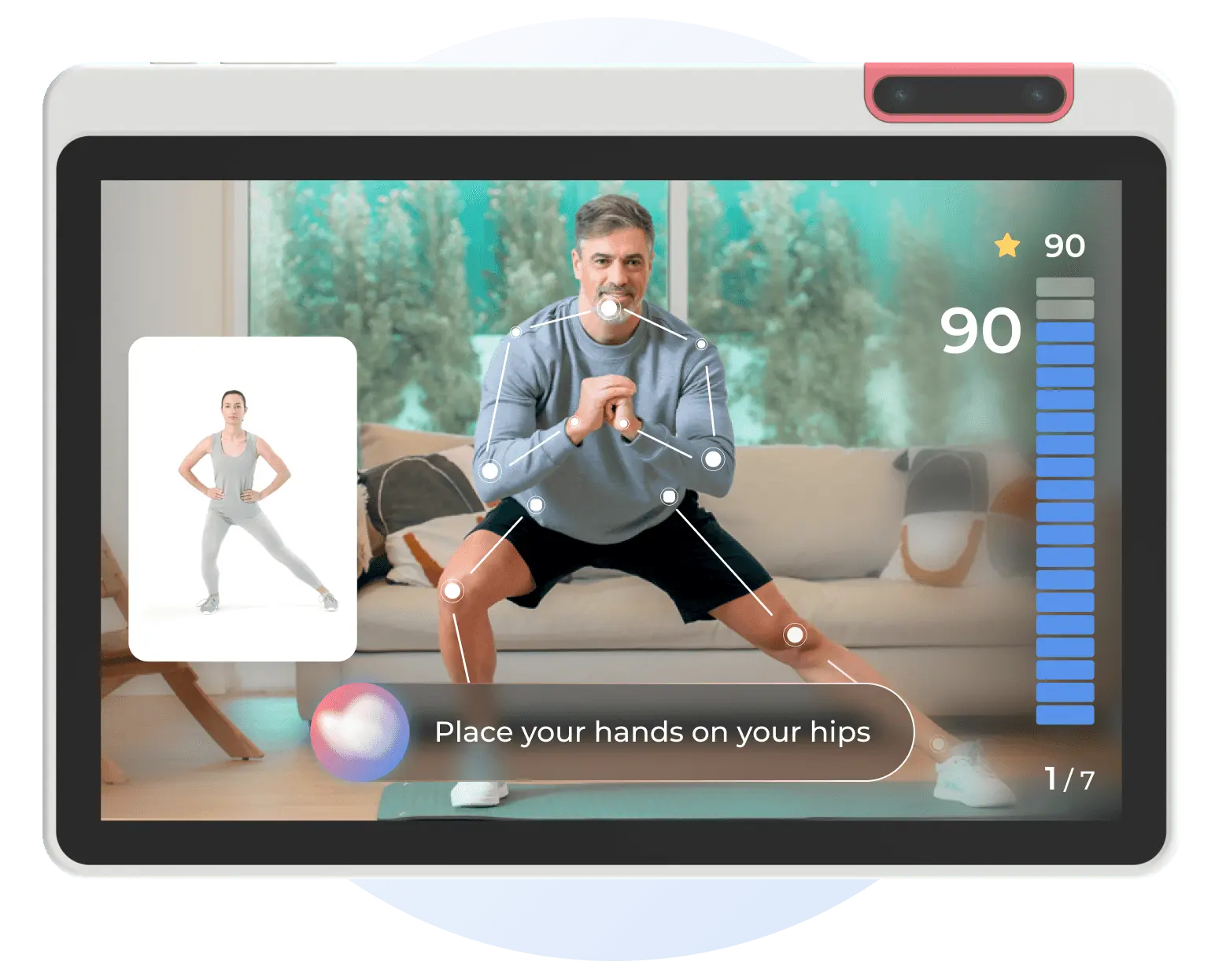How Sword Health used AI to increase clinician capacity 14x and save $1B in healthcare costs

About Sword Health
Sword Health is changing the way healthcare is delivered by combining AI with the expertise of licensed clinicians. With its AI care platform, Sword makes high-quality healthcare available anytime, anywhere. What started with physical therapy has since expanded into pelvic health, movement health, and recently mental health.
Since adopting AI, more than 600,000 members across three continents have completed more than 7 million AI-powered sessions, helping Sword’s clients avoid nearly $1 billion in unnecessary healthcare costs.
The Challenge: Scaling care while maintaining quality
The traditional physical therapy model has always been simple: one therapist, one patient, one session. This model worked when demand was low, but it’s no longer enough in today’s healthcare landscape. With an increasing number of patients—ranging from office workers to an aging population—the demand for care has far outpaced the old system.
For many patients, recovering from physical pain is made more difficult by long wait times, limited access to skilled therapists, and frequent appointments that disrupt daily life. Recovery often hinges on brief, one-hour sessions, where therapists must assess progress, adjust programs, and provide motivation—all within packed schedules. And if patients miss sessions, they may lose the progress they’ve made.
Many would look at this and say, “Just hire more therapists.” But increasing the workforce isn’t the real solution—it’s not scalable, and it doesn’t address the root problem.
Sword Health recognized that the real constraint isn’t the number of therapists—it’s how they spend their time. By using intelligent systems to handle routine tasks, they could free up therapists to focus on the complex, human-centered aspects of care that require clinical judgment.
The Solution: AI built to amplify human care
Healthcare’s capacity crisis is often met with a simple response: hire more people. More therapists, more administrators, more staff handling the ever-growing volume of work. But that’s the obvious move, and it’s not the solution.
Sword Health took a different approach. Instead of increasing the number of therapists to manage the avalanche of administrative tasks, they built AI Care Manager agents to handle high-volume, process-heavy work—tasks like enrollment, triaging, care coordination, and outreach to high-risk patients. These are the tasks that often fall through the cracks, but they are also the ones that need to be done consistently and at scale, with human oversight where it matters most.
Rather than simply increasing the number of therapists, Sword Intelligence amplifies the capabilities of existing care teams. The AI helps manage administrative tasks, analyzes real-time patient data, and provides actionable insights to clinicians, all while supporting decision-making that improves care outcomes.
By combining the precision of AI with the expertise of clinicians, Sword Health has developed a flexible, scalable healthcare model that delivers faster, more accessible, and higher-quality care, all while driving better outcomes and reducing costs.
How Sword Intelligence works:
- Real-time patient data collection: The system monitors pain levels, fatigue, and movement quality during sessions - not just collecting data, but building a live picture of each patient's progress.
- AI triaging and outreach: Instead of waiting for problems to surface weeks later, the AI spots trouble patterns early and triggers outreach to high-risk patients before they fall off track.
- Data-driven recommendations: Based on real-time data patterns, the AI suggests specific treatment adjustments and identifies when protocols need tweaking.
- Clinician-controlled insights: Clinicians make every final call. The AI explains its reasoning transparently, so therapists understand the logic but stay in complete control of patient care.
- Extended reach: One therapist can now effectively manage a much larger patient base because the AI handles the systematic monitoring and flags what needs attention without compromising care quality.
